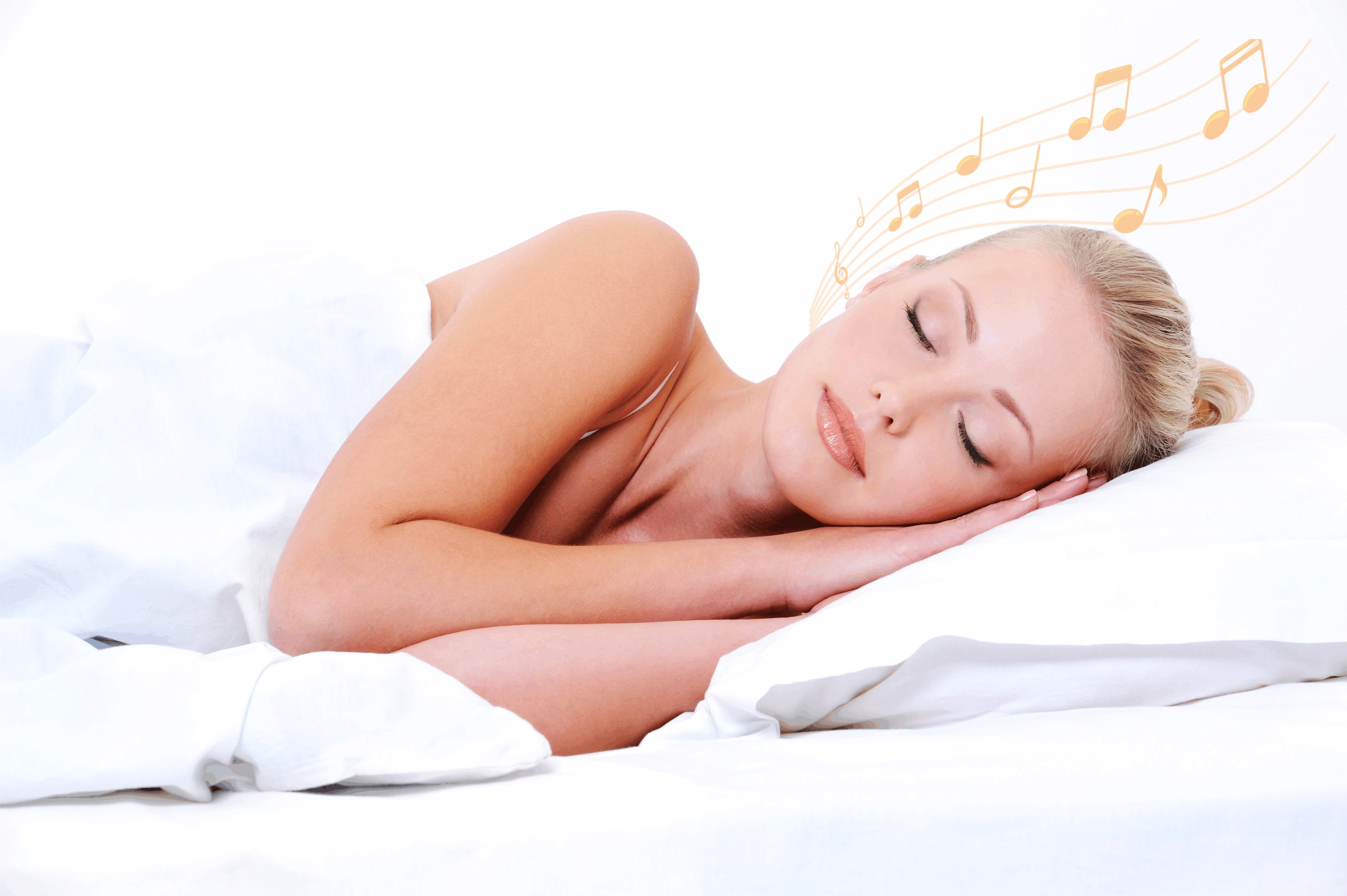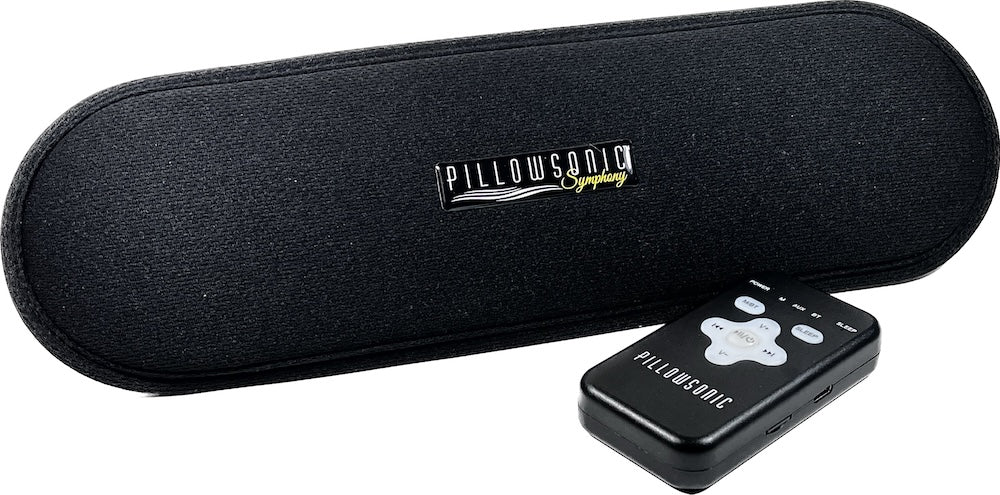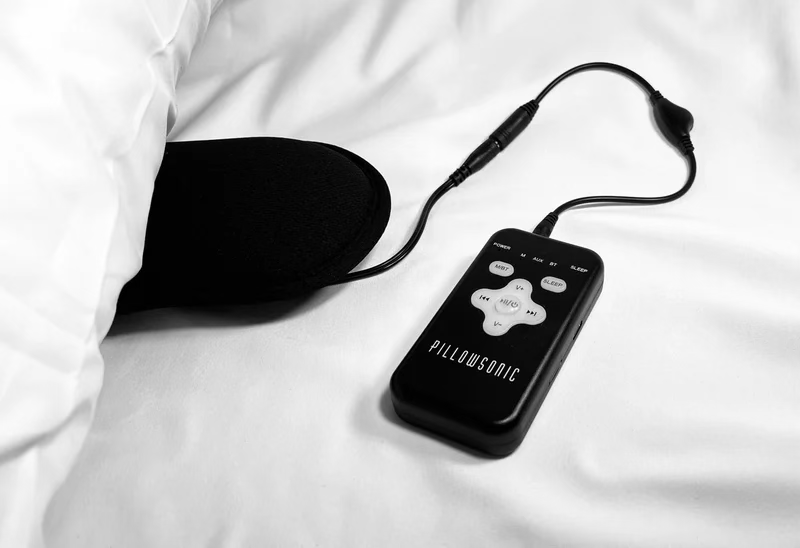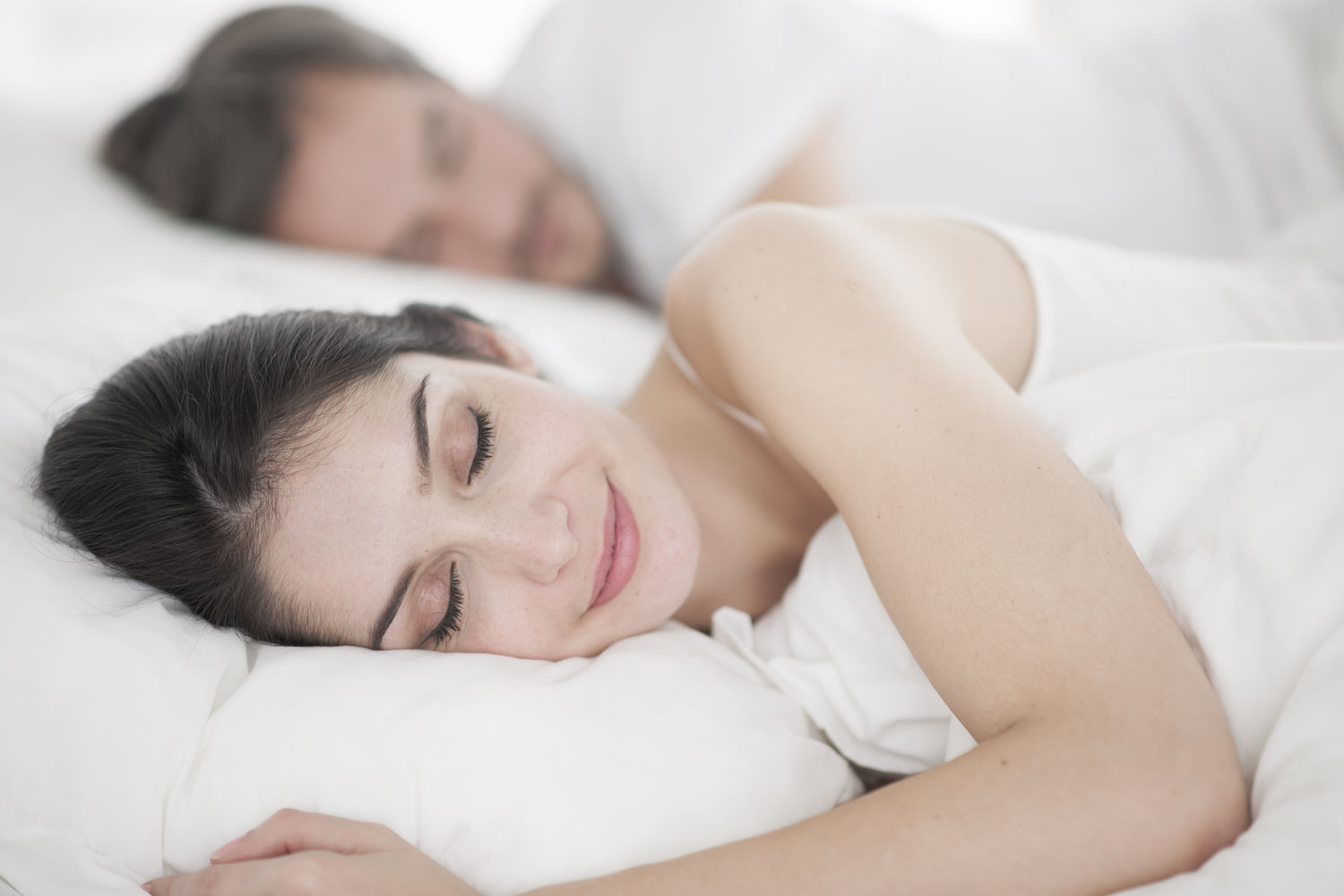
The World's MOST Comfortable Bedtime Audio Experience
It's like having your PERSONAL bedtime surround sound WITHOUT headphones or earbuds!
Let the soothing sounds of your choice lull you into slumber in total comfort, with Pillowsonic under your pillow!
ELEVATE your relaxation experience with the excellent quality of Pillowsonic, designed to be completely unnoticeable under your pillow, allowing you to listen in absolute comfort to your favorite bedtime soundtracks, privately, without uncomfortable headphones or earbuds! Simply connect it or pair it via Bluetooth to your favorite device and enjoy the best experience in bedtime audio relaxation.
Pillowsonic delivers premium quality sound - from the most intimate volume levels to plenty of power to assure perfect audibility through even the densest of foam pillows.
Pamper yourself with the luxury of Pillowsonic Symphony - your discovery to a unique experience of soundscape intimacy.
Put your mind at ease, enjoy your moment of falling asleep like never before, with Pillowsonic under your pillow.
Just you, your pillow and the sounds of your choice caressing your senses.


Relax, calm down, fall asleep faster - with less or no medication!
Music, sounds from nature, audio books, podcasts, whatever your mood desires... with Pillowsonic you’ll be able to indulge with soothing sounds emerging from within the entire surface of your pillow. Immersed in total comfort and free from headphones to turn on your pillow any which way, your mind will drift away from relentless thoughts that impede you from falling asleep and before you’d realize, you are entering in a state of delightful slumber (or hypnagogia, which is the state between wakefulness and sleep).
Pillowsonic, an excellent tool to help you:
Relief Stress and Anxiety
Listening to music can help reduce stress and anxiety. Music can calm the nervous system, lower cortisol levels, and trigger the release of dopamine, which can improve mood. Soothing, harmonious, and melodic music, such as classical, instrumental, acoustic, or nature sounds, can be especially beneficial. Slower tempos, around 60 to 80 beats per minute, can also have a calming effect. Jazz music can also be helpful, as its smooth and improvisational nature can help ease stress.
Overcome Insomnia
Research shows music is an effective, inexpensive and safe method for treating insomnia. Sleep is one of the pillars of health, including mental health. Approximately 30% to 40% of adults will experience insomnia at some point this year, and about 8.4% of adults take sleep medications most nights.
Mask Tinnitus, Chronic Pain, Uninvited Thoughts
White and other sounds are helpful to mask tinnitus, which otherwise may prevent you to fall asleep and cause stress when you need to rest. It is also proven that sound is an efficient way in many instances to distract your brain from feeling pain. As a matter of fact, many hospitals today use Pillowsonic under the pillow of patients to privately and in total comfort play music to be able to reduce the dosage of pain medications.
Control Depression
IMPROVING SLEEP
Music can help with depression-related insomnia. One study found that college students who listened to ambient music for more than three days had improved sleep quality and reduced anxiety and depression. Another study found that listening to music for at least 30 minutes at bedtime for four weeks helped people with depression-related insomnia.
REDUCING STRESS
Music can reduce stress hormones in the body. The amygdala, the part of the brain that controls emotions and mood, processes music directly. Music can also increase dopamine production, which can help relieve depression and anxiety.
REGULATING EMOTIONS
Different types of music can help with different emotions. Slow, calming music can help with anxiety and relaxation, while upbeat music can boost energy and mood. You can also create a playlist of songs that evoke positive emotions. Music with a beat around 60 beats per minute can help the brain synchronize with the beat, which can cause alpha brainwaves, which are associated with relaxation and consciousness.
Experience Guided Imagery and Meditation
Calming music can help with guided imagery and hypnosis, also known as guided meditation. Music can help you feel more immersed in your environment and block out real-life sounds, which can help you imagine yourself in a tranquil setting. Some say that slow or classical music can be more relaxing and help you sleep. Others say that 432 Hz sounds can block out external sounds, which may help with insomnia.

Did You Know You're NOT the Only One?
In the U.S., a whopping 43% of adults—that’s around 127 million people—tune into music as part of their bedtime routine, according to a study by the National Sleep Foundation. Whether it’s to relax, unwind, or simply tune out the noise of the day, music has become a nighttime companion for many.
Most bedtime listeners indulge for an hour or less, using music to create a calming escape that helps them drift into dreamland. From soothing melodies to gentle rhythms, the right music can be the key to a better night’s sleep. What’s your go-to bedtime soundtrack? 🌙🎶
Everyone LOVES Pillowsonic!
-

Excellent Purchase!
This purchase surpassed my expectations. The sound is clear, it's comfortable to sleep on, and I really enjoy listening to podcasts before falling asleep. The pillow speakers are portable and can be easily packed when traveling. I have been enjoying new podcasts in both English and Spanish and listening to them before falling asleep.
- Latin Music Fan
-

Helps Me Sleep!
I have Tinnitus so I use this under my pillow with a sound app from my iPhone. It really helps and I can hear it, but the hubby can't. I even travel with it now!
- Amazon Customer
-

Better Sound!
Over the years I had used three different styles of pillow speaker but this is the best for good sound. PillowSonic is the best quality of pillow speakers! I use mine every night. I even take it with me traveling.
- Sue Linnemann

